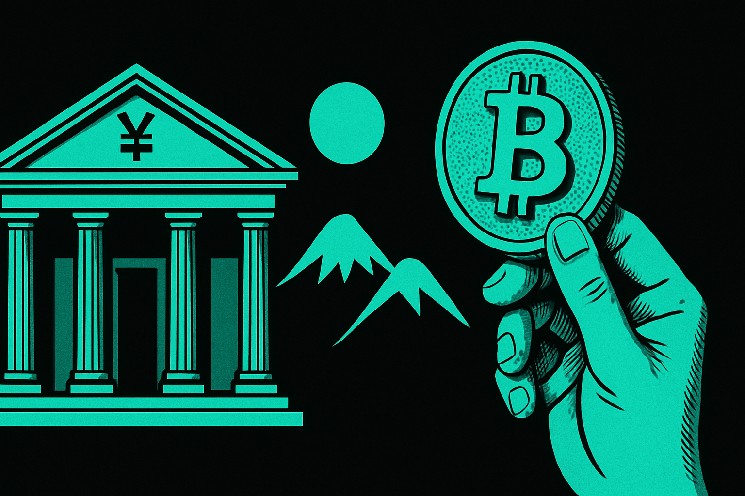- Japanese institutions may be quietly shifting their funds to Bitcoin as debt pressures increase internally.
- Bond rise and upcoming BOJ meetings could trigger a new wave of crypto demand.
A recent analysis by Jeff Park, head of Bitwise’s Alpha Strategies, shows that Japanese financial institutions may be increasing their exposure to Bitcoin. He points out that pressures within Japan’s financial system and the changing circumstances of the world may be urging some of the country’s biggest players to move capital to cryptocurrency.
Japan will become an incredible player for Bitcoin adoption, Park said.
Japan holds over $1.1 trillion in foreign reserves and approximately $8.7 trillion in pensions and life insurance. Even small adjustments within these reserves towards Bitcoin can affect global markets. Park argues that such a move carries weight given Japan’s position in global finances.
This development precedes the Bank of Japan’s next policy meeting from June 16th to 17th, 2025. Observers see signs that BOJs can adjust their approach to bond buying and inject more liquidity into the system. These types of policy decisions tend to affect capital flows to assets like BTC.
Bond market pressure and institutional shifts
Japan’s bond yields continue to increase, with government bond yields currently at 3.185% for 30 years. This increase reflects pressure in the domestic debt market, attracting attention in other asset classes. Bitcoin has recently reached a high of $112,000, supported by institutional demand and growing interest in alternatives as concerns about debt levels have risen.
Bitmex co-founder Arthur Hayes suggested that the Bank of Japan could resume quantitative easing at a meeting in mid-June. Historically, this kind of movement was followed by a Bitcoin rally. His views imply a possible repetition of past actions. There, liquidity injections help boost crypto prices higher.
Bitcoin has recently soaked in around $104,000, but it’s over $100,000. Some analysts interpret it as an indication that long-term investors (including institutional players) are continuing to make purchases. Current price levels indicate a growing interest in Bitcoin as a hedge against broader financial risks.
Reserve shift from Japan could cause a surge in Bitcoin
Japan’s position in the global credit market, supported by the carry trade in yen, has affected all shifts, including cross-border investments. Jeff Park points out that if Bitcoin is accepted as a neutral reserve, Japan’s financial position and large asset base can bring it to the forefront.
If Japan combines efforts with the US on changing its reserve strategy, this could launch a new pattern among central banks. Park noted that even a small reallocation from these funds to Bitcoin is sufficient to move the market. This can not only affect prices, but also how institutions in Asia and elsewhere act.
Analysts remain positive about Bitcoin’s long-term direction. Some estimates say that placing future prices near $200,000 will exacerbate global debt, especially when central banks are looking for reserves elsewhere. Current buying trends, along with broader financial signals, support these views, especially when Japanese institutions are involved without attention.










